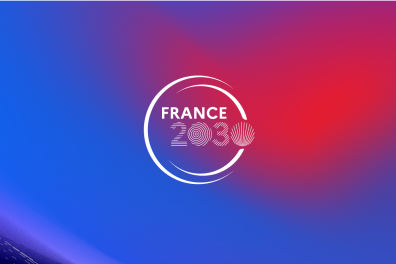Inalco wins the "Humanities and Social Sciences Research Programs" award for its DECRIPT project on the theme of "Civilizations and geopolitical unrest".
DECRIPT, "Dispositif d'étude des crises et des récits civilisationnels par la pluridisciplinarité et les terrains", will be funded to the tune of 9 million euros over a 7-year period.

Inalco and the 5 other winning institutions convinced the jury of their ability to put in place the levers needed to incubate, create, monitor, open up internationally and disseminate the chosen priority scientific theme.
The Ministry of Higher Education and Research and the General Secretariat for Investment, in charge of France 2030, presented the 6 France 2030 "Human and Social Sciences Research Programs" winners on Tuesday, December 10. Launched in the spring of 2024, this initiative aims to create research and expertise clusters capable of structuring the human and social sciences (SHS) in France and responding to the major challenges facing our society. The challenge is to bring scientific excellence in the humanities and social sciences closer to institutional and socio-economic players, and more broadly to citizens.
The project evaluation phase, based on a dossier and a hearing, was carried out by an international jury chaired by Prof. Antonio Loprieno (Universität Basel) and vice-chaired by Prof. Anne Lequy (Hochshule Magdebourg-Stendal). The jury paid particular attention to the scientific excellence of the project, its structuring character for humanities and social sciences disciplines in France, and its societal impact on one of the major challenges proposed by the call for expressions of interest. 41 projects were submitted in the first phase. Then 17 consortia-bearing institutions were pre-selected.
The project led by Inalco: "Civilizations and geopolitical troubles" theme - DECRIPT project
Civilizational narratives refer to socially and ideologically constructed discourses, articulating selective representations of the history and identity of a political whole: Russia's "civilization of civilizations", justifying its war against Ukraine, or China's "New Silk Roads" and its territorial claims in the South China Sea, are just two examples. These developments pose unprecedented challenges for France and Europe, forcing them to renew their understanding of global space and the foundations of their external action. DECRIPT aims to develop expertise and operational tools on the mobilization and effects of civilizational narratives in contemporary geopolitical crises, focusing on 4 key areas of major conflict for France and Europe: Indo-Pacific, Africa, Ukraine and the former Soviet world, Near East and Middle East.
The selection of this project signals genuine recognition for research in global and areal studies based on knowledge of languages, its scientific contribution and its relevance for society as much as for informing public decisions. It will provide unprecedented resources for young research, mobility and hosting partners, and develop new training courses and methodological tools.
The consortium includes Université Paris I, Université Sorbonne Nouvelle, Université Panthéon Assas, Université Bordeaux Montaigne, Université Paris 8, Université de Strasbourg, Université Paris Sciences et Lettres, Sciences Po Paris, Sciences Po Bordeaux, Sciences Po Lille, CNRS, IRD, Agence française de développement and IFRI. It also relies on a network of national, European and international stakeholders present in each of our areas of specialization, and numerous players dedicated to the transfer to public policy and society, including the MEAE's Diplomatic and Consular Academy.
Inalco is also part of the consortia of two other winning projects: ReligiS and HERMES
Human and social sciences are essential in a context of uncertainty and crisis to anticipate future shocks, renew bodies of doctrine, understand the diversity of behaviors and the evolution of societies, but also to evaluate the effectiveness of public actions and policies.
France 2030's "Humanities and Social Sciences Research Programs" call for expressions of interest is in line with this ambition, strengthening the SHS around priority scientific themes of major interest to the State. Thanks to these programs, which combine excellence in research, the creation of robust consortia and outreach to society and the international community, the knowledge produced by the SHS will be fully mobilized to inform public and private decision-making and to support disruptive innovation. It will also help to address major societal, geopolitical, climatic and cultural issues. This action is carried out on behalf of the French government by the ANR, and draws on the excellence of the higher education, research and innovation ecosystems.
Presentation of the winning projects and their consortia:
Scientific theme
| Porteur | Project | Organizations | Consortium (first circle) | |
| Université de Lille | DémoCIS | L'évolution des démocraties | CNRS, Inria | Université Grenoble Alpes, Université Lyon 3 Jean Moulin, Université CY Cergy Paris, IEP Saint Germain en Laye, IEP Grenoble |
| Université de Strasbourg | ReligiS | Les religions | CNRS | Université de Lorraine, EHESS, Inalco, Sciences Po / FNSP, Aix-Marseille Université, ENS Lyon, Université Lumière Lyon 2, École française d'Athènes, Université Lyon 3 Jean Moulin, EPHE, BNUS |
| Inalco | Decript | Les civilisations et les troubles géopolitiques | CNRS, IRD | Université Paris 1, Université Bordeaux Montaigne, Sciences Po, Sciences Po Bordeaux, IEP Lille, Université Paris Panthéon-Assas, Université de Strasbourg, Université Paris III Sorbonne Nouvelle, Université Paris 8 Vincennes Saint-Denis, Université Paris Sciences et Lettres (PSL) |
| Université Sorbonne Nouvelle | Hermes | La préservation du patrimoine culturel | CNRS | Université Bordeaux Montaigne, Université Rennes 2, Avignon Université, Inalco, Université Paris 8, CY Cergy Paris Université |
| Sorbonne Université | Sphinx | La préservation du patrimoine culturel | CNRS, Inria | UT Compiègne, Université Paris 1, Université Panthéon-Assas, Université PSL, Université de Caen Normandie, Université de Caen, Université Paris-Saclay |
| Université Grenoble Alpes | FORESEE | Les conséquences du changement climatique | CNRS, Inrae | Université de Lille, Université Lyon 3, Université de Bordeaux, Université Montpellier 3 |
The sources for this article are taken from Press release from the government published on December 11, 2024.